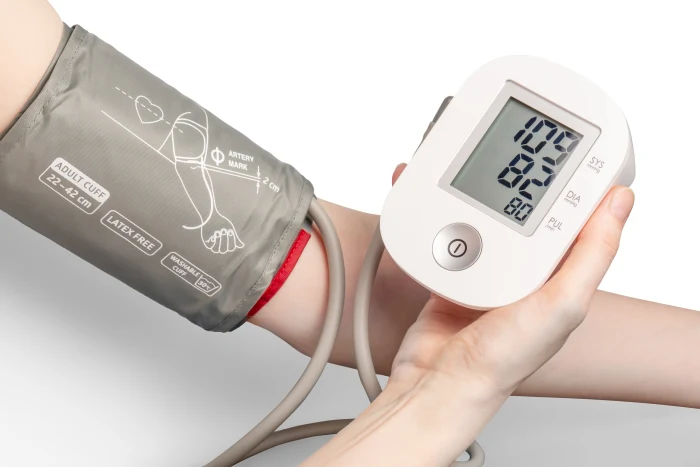You might be doing it already
Sure! High blood pressure is a serious health issue, but worrying about it too much can actually make it worse, which creates a troublesome cycle.
To figure out if you have high blood pressure, it’s important to know the numbers. Usually, a healthy systolic (the higher number) blood pressure is 119 or less, and a healthy diastolic (the lower number) blood pressure is 79 or less. So, if your blood pressure is “120 over 80,” that’s a bit higher than what’s considered healthy.
Here’s a simple guide from the American Heart Association to help you understand blood pressure ranges:
- Normal: Less than 120 systolic, less than 80 diastolic
- Elevated: 120-129 systolic, less than 80 diastolic
- High blood pressure (stage 1): 130-139 systolic or 80-89 diastolic
- High blood pressure (stage 2): 140-179 systolic or 90 or higher diastolic
- Hypertensive crisis: Higher than 180 systolic, and/or higher than 120 diastolic
So what’s the worst thing you can possibly do if you have high blood pressure? The answer is pretty much unanimous among cardiologists.
What to Never Do if You Have High Blood Pressure
If someone has high blood pressure, the most important thing is to take it seriously. Even if it doesn’t cause any pain, cardiologist Dr. Ernst von Schwarz, author of The Secrets of Immortality, tells Parade it can be very harmful. High blood pressure can silently harm our blood vessels, heart, brain, and kidneys if we don’t do something about it. That’s why it’s often called a ‘silent killer’. It’s crucial to get it checked and treated.
The most important thing for someone with high blood pressure is to check it regularly. Dr. Cheng-Han Chen, interventional cardiologist and medical director of the Structural Heart Program at Memorial Care Saddleback Medical Center in Laguna Hills, California, concurs. This can be done at the doctor’s office or with a blood pressure cuff at home. It’s crucial for people diagnosed with high blood pressure to keep an eye on their levels. This helps make sure it’s under control and not causing harm.
Dr. Chen suggests that keeping an eye on your blood pressure and keeping a record can assist your doctors in knowing when to change your medications. It also gives you a chance to be proactive about your health. You can make positive changes like losing weight, exercising, and cutting down on salty and processed foods.
What Are the Biggest Risks Associated With High Blood Pressure?
High blood pressure is connected to many other health issues. So, it’s crucial to control it not only for your heart but for your overall well-being too.
If you don’t manage high blood pressure, it raises the chances of serious heart issues like heart disease, heart failure, and strokes. It can also lead to problems in other parts of your body like kidney failure, vision problems, memory issues, and sexual difficulties. Dr. von Schwarz adds that neglecting blood pressure can lead to another very serious medical condition.
Not taking care of high blood pressure can lead to a serious condition called hypertensive heart disease, which is like heart failure caused by uncontrolled high blood pressure. Dr. von Schwarz also points out that it can lead to the hardening of the heart’s arteries, which can cause heart attacks, strokes, and even death. So, it’s really important to monitor your blood pressure and take action!
How Can Patients With High Blood Pressure Best Protect Their Heart Health?
A good thing about high blood pressure is that it’s generally treatable and at least somewhat within your control. To best protect yourself and avoid serious medical problems, our experts advise:
- Exercising regularly
- Reducing sodium in your diet
- Maintaining a healthy weight
- Managing stress levels
- Avoiding alcohol
- Quitting smoking (and any other form of tobacco)
- Keeping regular medical check-ups
- Taking medications as prescribed by your physician
Dr. von Schwarz also recommends self-testing at home.
“Check your blood pressure twice daily at home under resting conditions, sitting down for 10 minutes with a goal of less than 130/80 mmHg,” he notes. “If the blood pressure is constantly higher, then re-consult with your doctor.”
Sources
- American Heart Association
- Cheng-Han Chen, MD, PhD, FACC, FSCAI
- Ernst von Schwarz MD, PHD, FESC, FACC, FSCAI
SOURCES:PARADE

